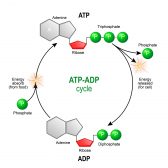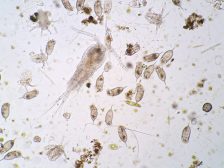Definition
noun
A principle stating that both allele and genotype frequencies in a randomly-mating population remain constant – and remain in this equilibrium across generations — unless a disturbing influence is introduced.
Supplement
For instance, a population containing the genotypes AA, aa and Aa, the frequency of AA will always be p2, aa will be q2, and Aa will be 2pq at equilibrium, where the p is the frequency of A and q is the frequency of a.
Deviation from Hardy-Weinberg principle indicates evolution of species. Examples of disturbing influences include non-random mating, mutations, selection, limited population size, random genetic drift and gene flow.
Word origin: named after G. H. Hardy and Wilhelm Weinberg.
Abbreviation: HWE
Variants:
User Contributions / Comments:
- Basically, The Hardy-Weinberg equation is concerned with the genetics of populations and that random mating occurs.
(~Dlee7283)






